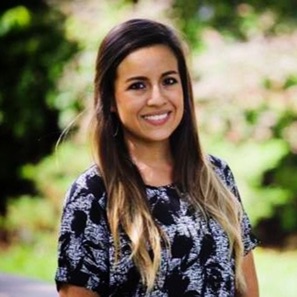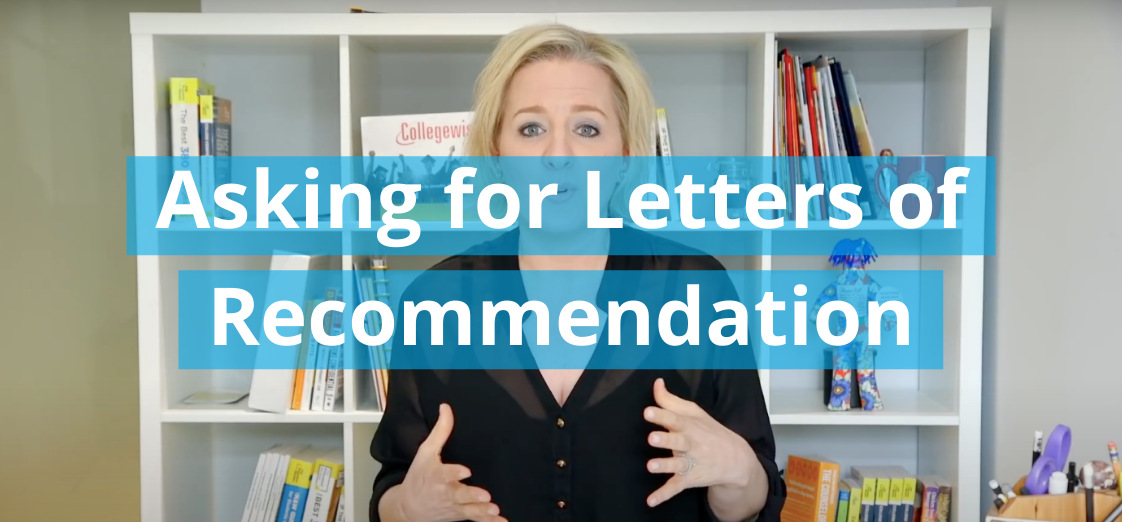In my first year as a college counselor, I met a student – let’s call her Kamila – who was adamant about studying medicine, and she shaped her list of colleges based almost exclusively on the reputation of their biology or pre-med programs.
I always wondered why she wanted to be a doctor, but I wasn’t her assigned counselor, so it never really came up. One day, during the winter of her senior year, she came by my office to complain about her chemistry class. She admitted it was her least favorite class, and I finally had to ask why she wanted to study medicine. (Didn’t she know that doctors live their entire lives around chemistry and must continue studying it forever and ever? – this last piece only happened in my head because I didn’t want to freak her out.)
Her answer really surprised me: she wanted to be a doctor, so that she could take care of her family in the event that someone had a medical emergency. She wasn’t thinking about money, or accolades and recognition from her community. All Kamila wanted was the certainty that they could go to her in an urgent situation.
But what if her family experienced a non-health related emergency? We only spent about 30 seconds thinking about other bad things that could happen to them, as I DO NOT recommend stewing on these thoughts. However, in this very particular case, it was exactly the awareness Kamila needed to break free from the weighty expectations she was setting for herself. Someone had to burst her bubble, so that she could see that becoming a doctor wasn’t the only way she could step up for her family.
This was a lesson for me, also, as we sat and thought through some of the other academic opportunities available at the colleges she’d applied to. My counseling work in the years that followed have affirmed a lot of what I learned that day. Some students and parents want academic interest to drive the college search but will limit their expression of interest to, “They offer a business major.” It’s important to know that your major is just one of the stepping stones on your way through college. There are many other experiences that will shape your life after college.
Focusing your search on a specific major could limit not just the colleges you apply to, but what you do when you get there. As counselors, we often point out the fact that many - if not most - students change their mind about majors once they get to college. Also, most jobs for college graduates come from outside of a person’s major or degree. Not to mention the fact that switching careers at some point in your life is becoming more common and has been found to be quite fulfilling.
So then why do we fixate on majors at the outset? From my experience, it’s mostly out of fear that students will graduate from college without a career. The myth that you will be defined by what you study in college encourages families and students to fixate on studying something they think will bring them a better life.
Approaching your college search with more open-mindedness gives students the ability to feel more confident about the schools they apply to because they are thinking more clearly about what they want. This self-reflection and awareness is especially important when applying to very selective colleges. The quality of students’ applications is always vastly improved when you actually know about the opportunities available on campus and how you can make the most of them as a student.
No matter what schools end up on your final list, I encourage you to consider the following key points when evaluating the value of colleges’ academic programs, so that you are less likely to miss out on exciting opportunities.
1. Academic opportunities in college do not begin and end with students’ majors.
Students’ learning isn’t limited to the classroom. Most colleges offer pre-professional and certificate programs to set you up for the career you’re dreaming about; work experiences that allow you to make money while you’re enrolled as a full-time student; study abroad programs for you to experience a different part of the world; internships and research opportunities for you to have a close-up of the real-world work in your field of study. In thinking about a high-quality academic experience, all these pieces will be important.
In looking for reasons for Kamila to get excited about her college list, we found lots of study abroad programs run by academic departments within the university. She previously assumed that studying abroad would be out of the question with a pre-med program but learned that there were ways for her to continue earning the same amount of credits while living in a different country. The real magic, though, was in how these combined experiences could help shape her as the whole person she hopes to become: someone who has a positive influence on the world – and her family – in more ways than one.
Colleges want you to take advantage of all their academic resources beyond what is required for you to graduate. The following essay prompt from the University of Southern California is an example of how colleges review students’ intentions as they consider each applicant for admission:
Describe how you plan to pursue your academic interests and why you want to explore them at USC specifically. Please feel free to address your first- and second-choice major selections.
Notice that their question asks students to talk about academic interests beyond their major; the major is more of a second thought here. Which brings me to my next point...
2. There are so many pathways toward an exciting career.
It used to be that the thing you studied in college defined a person’s whole career. We are well past the days of the industrial era, and, while some students still benefit from attending technical colleges to learn a particular trade, most students are best served by thinking broadly and creatively about the skills they want to develop. Critical thinking skills are in much higher demand at liberal arts and research colleges.
For Kamila, a young student activist, it was important to find peers and mentors who shared her values. She was proud of the talents she developed as a community organizer and sought opportunities to expand her potential. Kamila identified opportunities to explore her interests, strengthen her connection to all people, and build on this set of skills. When she opened up her field of view to what the colleges had to offer besides strong science programs, Kamila found a number of student organizations focused on social justice work. This also got her thinking about the larger community and location of the colleges she applied to. That new perspective got her excited about continuing to grow as an activist in this new phase of her life and reaffirmed that this is a valuable part of who she is as a person.
Her moderate to severe disdain for chemistry signals that she probably won’t have a happy career in medicine. But I would not be surprised if Kamila becomes the next Brittany Packnett Cunningham.
3. Most colleges in the U.S. are built on indecision. The core curriculum is basically intended to help you make some confident decisions about your studies.
Many students don’t know exactly what they want to study in college until they get there. Even those who are sure about your major take some level of general education courses outside of their field. Students who occasionally check in with their interests and skills in all disciplines have a much easier time finding the right opportunities to help them reach their goals.
Kamila’s favorite high school classes were in the humanities. Her pre-med track required lots of science and math courses, so she decided to balance out her freshman year in college with courses she would enjoy. An Anthropology & Evolution course at one of her potential colleges got her excited about learning how human bodies have adapted to our ever-changing needs. This blend of life sciences and humanities worked to activate Kamila’s curiosity to start asking questions about human health she hadn’t thought about before, like the science behind keto diets and the art of making meals that taste like home.
Consider how you might respond to this question in your college applications:
At Barnard, academic inquiry starts with bold questions. What are some of the bold questions you have pondered that get you excited and why do they interest you? Tell us how you would explore these questions at Barnard.
Colleges want students who are intrinsically motivated to keep learning, not just to meet a goal or complete their degree, but to satiate their curiosity. No ten-year plan? No problem! Let colleges see how you’ll make the most of the resources at your fingertips.
4. Rather than getting starry-eyed about the random amenities at a college, think about how those amenities could support your growth.
Many college applications ask students about their intended areas of study; counselors affectionately refer to this as the “why major” question. You can’t just say that it’s because the business program is “really good,” and name dropping professors, libraries, or research centers you found online isn’t as effective as you’d think. Even if you have no idea you want to study, applicants must describe their interests and self-awareness.
In her applications, Kamila said she wanted to be a doctor to help people. She told me her intentions with these responses were to show that she was a caring and devoted member of the community and went on to describe her activism work. She did a great job focusing on her strengths and never once mentioned how taking chemistry and calculus in the same day made her “want to set [her] hair on fire.” Anyone reading her statements could easily imagine her using medical authority as a healthcare advocate, tending to folks without homes and at protests, or running a hospital as a haven for trans youth.
By the end of her senior year, Kamila enrolled in her dream college. The self-awareness she practiced in the months leading up to graduation made her realize that she wasn’t as sure about what the next few years would look like as she had hoped. However, she felt lighter and more excited thinking about the possibilities. Kamila was starting to worry that her organizing days were behind her as school got more and more intense. Taking honest stock of her skills, values, and interests helped her see that the route to med school she’d planned was maybe a little too prescriptive for her.
Colleges often say that when they admit a student, they’re admitting a whole person. You become a part of the community; you’re not just a body in a classroom. When it comes to students picking the right colleges, think about who you hope to be five years after your high school graduation. What are the important values you will keep? Are there specific goals you want to reach? Of the many things you already do well, what do you want to master? It's totally fine if you don’t have the answers right now, just be careful of trying to convince yourself that you do.
About Us: With more than twenty years of experience, Collegewise counselors and tutors are at the forefront of the ever-evolving admissions landscape. Our work has always centered on you: the student. And just like we’ve always done, we look for ways for you to be your best self - whether it’s in the classroom, in your applications or in the right-fit college environment. Our range of tools include counseling, test prep, academic tutoring, and essay management, all with the support of our proprietary platform, leading to a 4x higher than average admissions rates.



.png?width=600&height=200&name=Blog%20CTAs%20(7).png)



